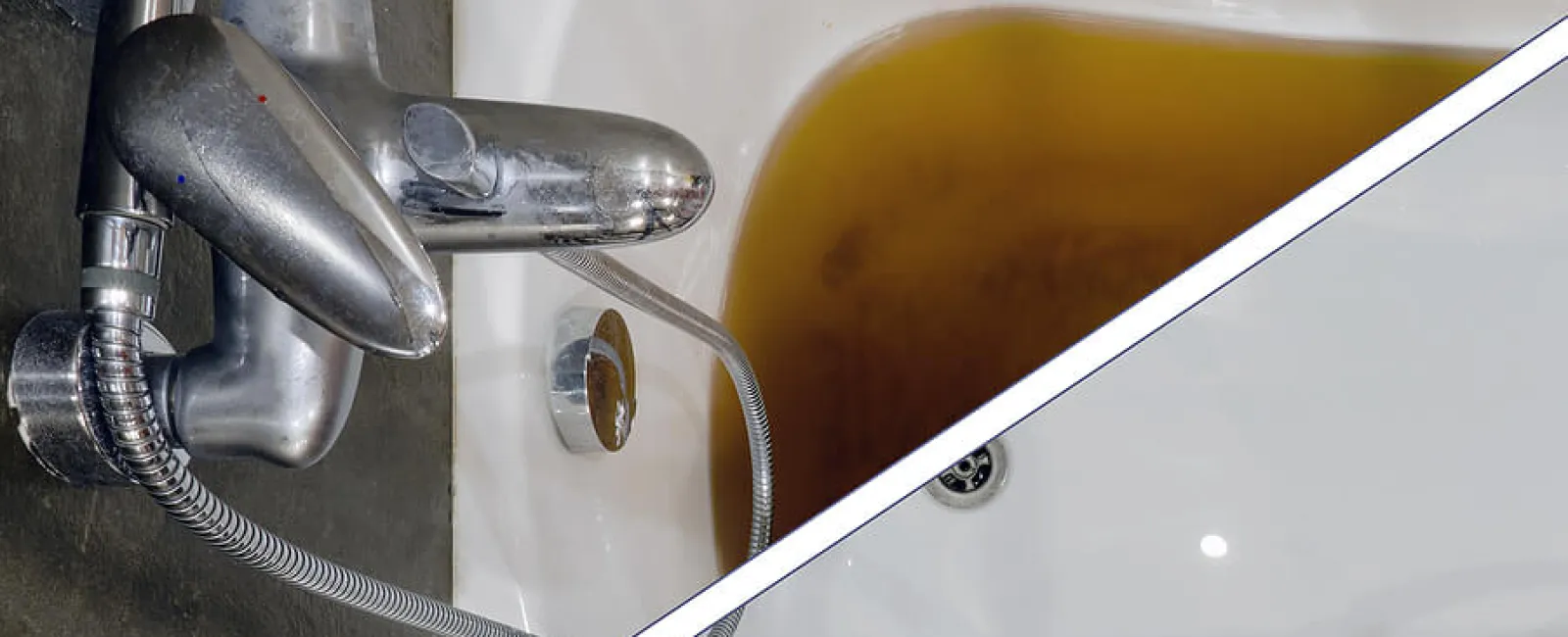Unveiling the Mystery of Sewage in the Bathtub
Unveiling the Mystery of Sewage in the Bathtub
Blog Article
What're your concepts on What To Do If Sewage Starts Backing Up Into the Shower?

Sewage backup in the tub can be a distressing and unhygienic issue for any house owner. Not just is it troublesome, yet it additionally positions major wellness dangers and suggests underlying concerns with the plumbing system. Recognizing why sewer is coming up through the bathtub is important for taking proper activity to address the problem successfully.
Introduction to the Problem
Common Factors for Sewer Backup
Clogs in the Drain Line
Among one of the most common sources of sewage backup is a clog in the sewage system line. This can happen due to the accumulation of particles, grease, or international items in the pipelines, protecting against appropriate circulation and causing sewage to support into your tub.
Tree Root Breach
Tree roots looking for moisture and nutrients can penetrate sewage system lines via little splits or joints. In time, these roots can expand and expand, creating significant damage to the pipes and leading to sewage backup issues.
Recognizing the Trouble
When sewer starts backing up into the bathtub, it's a clear indication of an issue with the drainage system. The wastewater that must be streaming away from your home is rather finding its back into your living space, which can bring about substantial damage and health hazards.
Potential Causes
Numerous factors can add to sewage back-up in the bathtub. From blockages in the drain line to concerns with the plumbing infrastructure, identifying the root cause is important for locating a service.
Aging Infrastructure
Older homes may have obsoleted plumbing systems that are much more vulnerable to rust, fractures, and deterioration. As pipelines age, they end up being extra vulnerable to leakages and obstructions, raising the chance of sewage back-up events.
Heavy Rainfall or Flooding
During durations of heavy rainfall or flooding, the drain system might come to be overwhelmed with excess water, causing back-ups and overflows. This can result in sewer backing up right into tubs and other fixtures inside the home.
Indicators of Sewage Backup
Foul Odors
Undesirable odors originating from drains pipes or components, specifically in the shower room, may suggest sewage backup concerns. These smells are frequently solid and persistent, signifying a problem that requires immediate attention.
Slow Draining Fixtures
Bath tubs, sinks, and commodes that drain gradually or otherwise in all could be experiencing sewer backup. If multiple components are impacted concurrently, it's likely that the problem originates from an usual factor, such as the primary sewer line.
Gurgling Sounds
Odd gurgling or bubbling noises coming from drains when water is running somewhere else in the house are indicative of air caught in the plumbing system. This air buildup can result from sewage backup and must be checked out promptly.
Health And Wellness Threats Associated with Sewage Backup
Contamination of Water
Sewage backup can infect the water supply in your home, posturing a major health and wellness danger to you and your household. Exposure to infected water can result in stomach issues, skin infections, and other illnesses.
Mold and mildew Growth
Moisture from sewer back-up can produce suitable problems for mold and mildew growth in your home. Mold and mildew spores can worsen respiratory problems and trigger allergies in sensitive people, making prompt clean-up essential.
Spread of Illness
Sewage has hazardous germs, infections, and parasites that can cause a range of diseases, including liver disease, cholera, and gastroenteritis. Entering contact with sewage or polluted surface areas places you in danger of infection.
Cleaning Up After Sewage Back-up
Sanitation Procedures
Extensively decontaminate and sanitize influenced locations after sewage backup to get rid of damaging germs and prevent mold development. Usage suitable cleaning products and protective gear to guarantee risk-free and effective cleanup.
Repair of Affected Locations
Fix any kind of damage to floor covering, walls, or fixtures caused by sewage back-up. Depending on the extent of the damage, you might require to replace carpeting, drywall, or various other products to recover your home to its pre-loss condition.
Immediate Actions to Take
Turning Off Water Supply
In the event of sewage back-up, it's essential to shut off the water to prevent further contamination and damage. Locate the main water shutoff valve in your house and shut it off until the concern can be solved.
Contacting a Specialist Plumber
Handling sewer back-up is not a DIY task. Get in touch with a qualified plumber with experience in handling sewage-related problems to evaluate the scenario and carry out necessary repair work or cleanings.
Staying Clear Of Contact with Polluted Water
Till the sewage back-up is dealt with, avoid contact with infected water to avoid the spread of germs and microorganisms. Use safety equipment if you need to be in the afflicted area and wash your hands extensively later.
Safety nets
Normal Maintenance of Drain Lines
Schedule regular assessments and upkeep of your sewage system lines to recognize and deal with potential concerns before they escalate into significant issues. This can consist of clearing out debris, inspecting for tree root invasion, and repairing any kind of damaged pipes.
Mounting Bayou Valves
Think about mounting bayou shutoffs in your plumbing system to stop sewer from flowing back into your home throughout durations of heavy rainfall or flooding. These valves immediately close when water starts backing up, shielding your residential or commercial property from contamination.
Proper Disposal of House Waste
Avoid purging anything apart from toilet paper and human waste down the toilet to stop obstructions and blockages in the sewage system line. Dispose of grease, oil, and various other home chemicals properly to minimize the danger of plumbing problems.
Why Is Water Backing Up in My Bathtub When I Flush My Toilet?
What to do about a sewer line clog
First, don’t bother with plunging. No amount of plunging will dislodge the clog in a sewer line. The clog is too far away. Plungers are for clogs in the toilet itself, not the sewer line. Plus, the most likely causes of a sewer clog are:
Tree roots Flushed toys or feminine products Grease buildup Those items don’t move easily. And in the case of tree roots, the roots need to be cut out of the pipe and the pipe will need to be repaired.
You’ll need a closet auger. A closet auger is a type of plumber’s snake with a protective cover to keep from scratching the delicate porcelain toilet. If the clog is further down, you may need to remove the toilet or use one of your cleanouts to get to the clog.
We also recommend doing a video inspection of the drain to ensure that the cause of the clog has been completely removed. Otherwise, you could have the same problem again in a few days or weeks.
https://mspplumbingheatingair.com/blog/why-is-water-backing-up-in-my-bathtub-when-i-flush-my-toilet

I was shown that editorial on Why sewage is coming up through your bathtub through an associate on our other web property. Those who liked our blog post kindly do not forget to share it. I praise you for being here. Come back soon.
Get Offer
Report this page